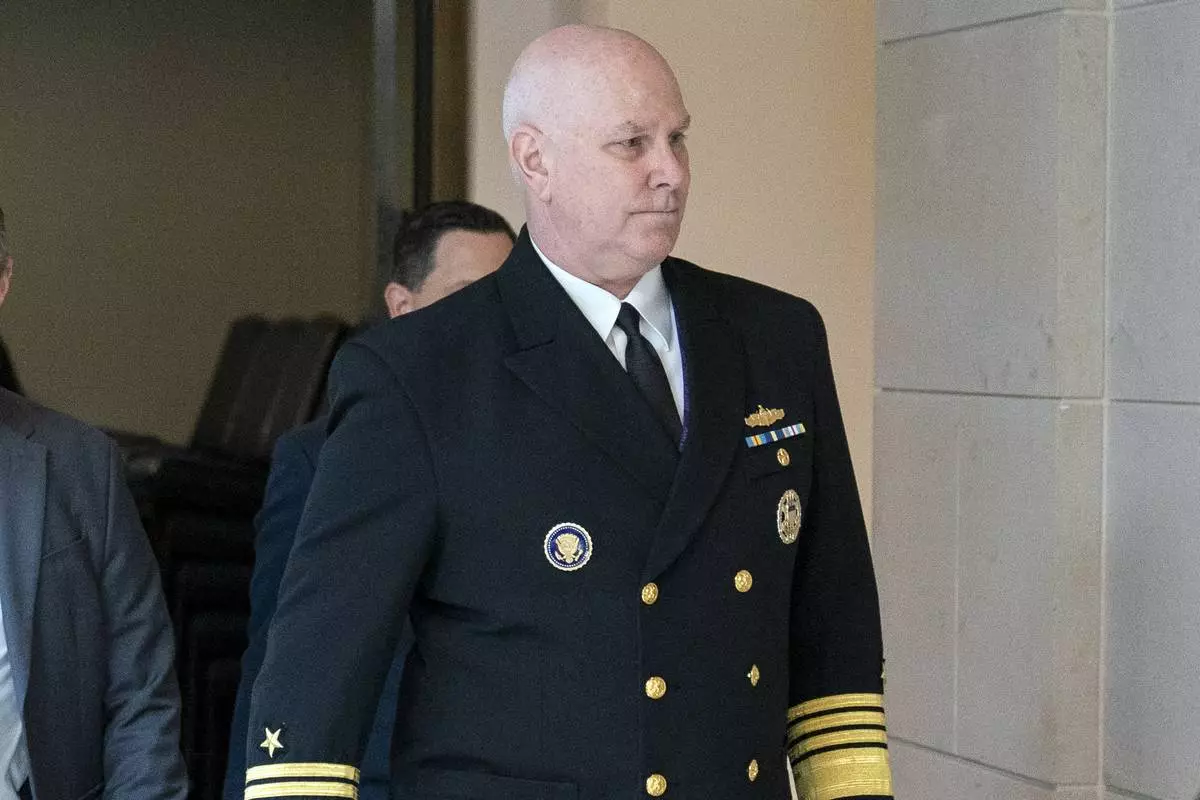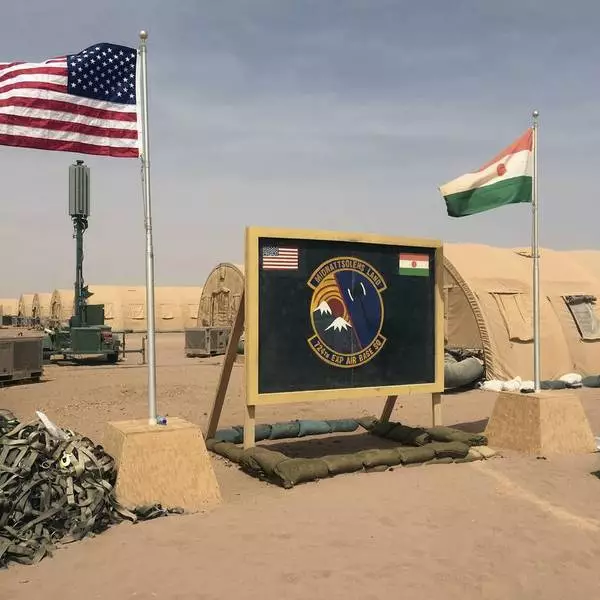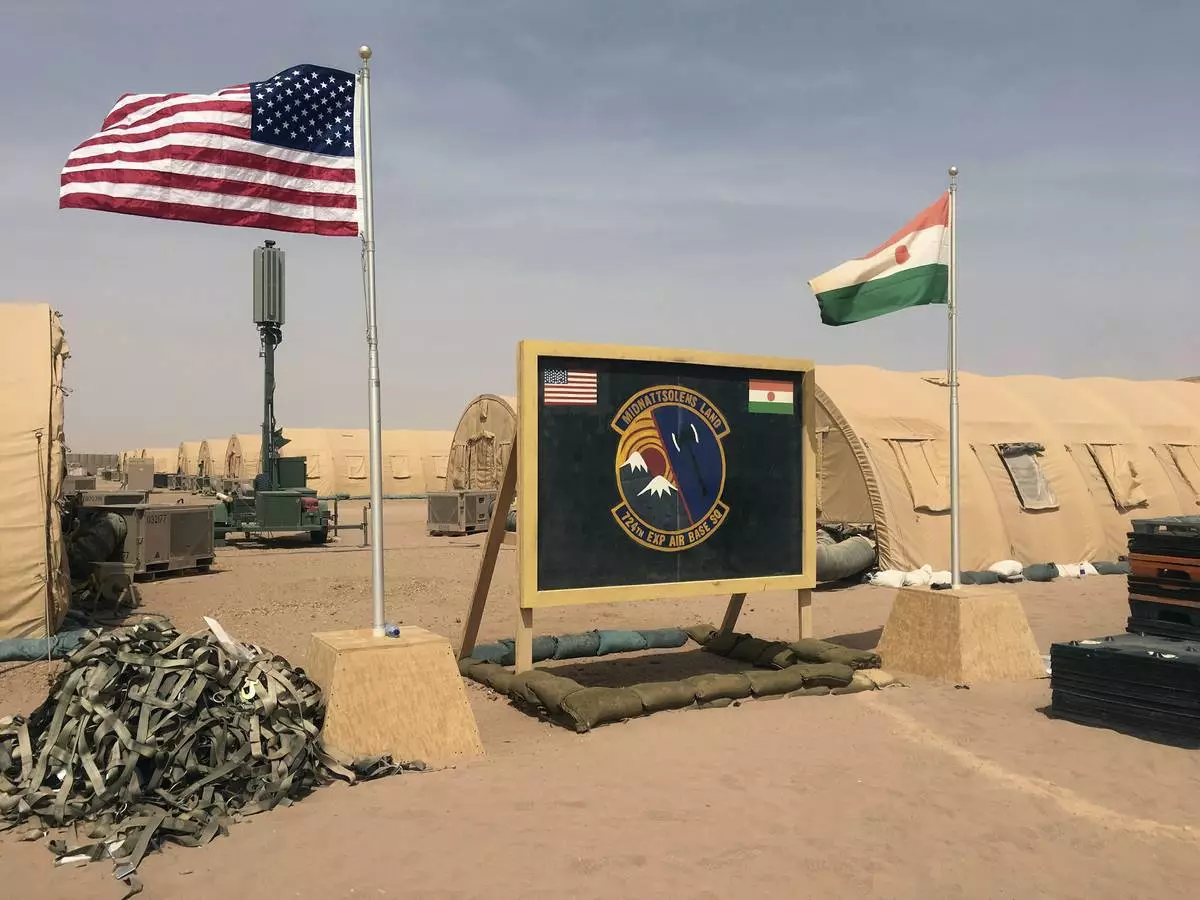A Utah man who has been in a wheelchair for more than three decades has created a pheasant hunt for people like him who need help getting into the outdoors.
Clint Robinson broke his neck after being thrown off a horse at a rodeo 32 years ago. He's done his best to keep getting into the outdoors to hunt and fish, the Daily Herald in Provo reports.
The event he calls "Wheelchairs in the Wild" pairs people that have physical disabilities with hunters who help them with whatever they need. Many go in off-road vehicles.
"What we're trying to do is get new injured, handicapped people back out into the field, trying to get them back out, enjoying the outdoors and wildlife that's out there and show them that there's other things that they can do besides sitting in the house doing nothing," Robinson said.
The youngest hunter at last year's event was 13-year-old Missy Cowley who has spina bifida. Her father loves to hunt but didn't know how accommodate her wheelchair. Her mother, Cindy Cowley, said it was amazing to find a program that allowed her daughter to go hunting.
"We always told her when she was little, you can do everything you want to do ... but we just got to figure out a way," Cindy Cowley said. "(But) we really did not know how we were going to get her up there to (hunt)."
Missy Cowley said it was a great experience that also allowed her to meet other people who use wheelchairs.
"I was like, this is awesome. I can actually do it," Missy said. "It was really fun. And I love being outdoors."
Division of Wildlife Resources law enforcement officer Jerry Schlappi, who helped with the event, said Robinson is a perfect role model showing other wheelchair users with disabilities that they don't have to give up what they love.
"He's never let his disability or whatever slow him down," Schlappi said. "I think his whole thing is just giving people an opportunity and showing them that they can still do it."
Information from: The Daily Herald, http://www.heraldextra.com
WASHINGTON (AP) — The United States will pull the majority of its troops from Chad and Niger as it works to restore key agreements governing what role there might be there for the American military and its counterterrorism operations, the Pentagon said Thursday.
Both African countries have been integral to the U.S. military’s efforts to counter violent extremist organizations across the Sahel region, but Niger’s ruling junta ended an agreement last month that allows U.S. troops to operate in the West African country. In recent days, neighboring Chad also has questioned whether an existing agreement covered the U.S. troops operating there.
The U.S. will relocate most of the approximately 100 forces it has deployed in Chad for now, Pentagon press secretary Maj. Gen. Pat Ryder said Thursday at a press briefing.
“As talks continue with Chadian officials, U.S. AFRICOM is currently planning to reposition some U.S. military forces from Chad, some portions of which were already scheduled to depart. This is a temporary step as part of the ongoing review of our security cooperation, which will resume after Chad’s May 6th presidential election," Ryder said.
In Niger, the majority of the 1,000 U.S. personnel assigned there also are expected to depart, Ryder said.
U.S. and Nigerien officials were expected to meet Thursday in Niger's capital, Niamey, “to initiate discussions on an orderly and responsible withdrawal of U.S. forces," the State Department said in a statement late Wednesday. Follow-up meetings between senior Pentagon and Niger officials are expected next week “to coordinate the withdrawal process in a transparent manner and with mutual respect,” Ryder said.
Called status-of-forces agreements, these deals allow the U.S. to conduct critical counterterrorism operations within both countries' borders and have supported military partner training. The reversals have prompted concern that U.S. influence in Africa is losing ground to overtures from Russia and China.
Relations have frayed between Niger and Western countries since mutinous soldiers ousted the country’s democratically elected president in July. Niger’s junta has since told French forces to leave and turned instead to Russia for security.
Earlier this month, Russian military trainers arrived to reinforce the country’s air defenses and they brought Russian equipment, which they would train Nigeriens to use.
Niger plays a central role in the U.S. military’s operations in Africa’s Sahel region, a vast region south of the Sahara Desert. Washington is concerned about the spread of jihadi violence where local groups have pledged allegiance to al-Qaida and the Islamic State groups.
Niger is home to a major U.S. air base in the city of Agadez, about 920 kilometers (550 miles) from the capital, which is used for manned and unmanned surveillance flights and other operations. The U.S. also has invested hundreds of millions of dollars in training Niger’s military since beginning operations there in 2013.
Officials from the State Department, U.S. Africa Command and the Pentagon will work with Chad’s government to make the case for U.S. forces to continue operations, Joint Chiefs Vice Chairman Adm. Christopher Grady said Wednesday.
Grady told The Associated Press in an interview that if both countries ultimately decide the U.S. cannot remain, the military will have to look for alternatives to run counterterrorism missions across the Sahel.
“If we are asked to leave, and after negotiations that’s the way it plays out, then we are going to have to recalculate and figure out a new way to do it,” Grady said.
The news of the departure of U.S. forces in Chad was first reported by The New York Times.

FILE - Vice Chairman of the Joint Chiefs, Adm. Christopher Grady, right, arrives for a closed door briefing about the leaked highly classified military documents, on Capitol Hill, April 19, 2023, in Washington. Grady says there's been no final decision on whether or not all U.S. troops will leave Niger and Chad. (AP Photo/Alex Brandon, File)

US to pull troops from Chad and Niger as the African nations question its counterterrorism role

US to pull troops from Chad and Niger as the African nations question its counterterrorism role

FILE - A U.S. and Niger flag are raised side by side at the base camp for air forces and other personnel supporting the construction of Niger Air Base 201 in Agadez, Niger, April 16, 2018. The United States is attempting to create a new military agreement with Niger that would allow it to remain in the country, weeks after the junta said its presence was no longer justified, two Western officials told The Associated Press Friday April 19, 2024. (AP Photo/Carley Petesch, File)













